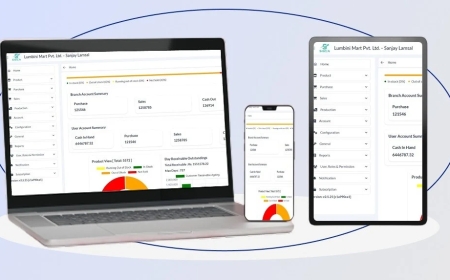Estimation Services: The Backbone of Cost Accuracy in Construction

In the construction industry, where every dollar matters, Estimation Services form the foundation of informed decision-making. Whether its a small residential remodel or a multi-million-dollar commercial development, cost certainty is crucial for project success. Estimation services offer the tools and insights necessary to evaluate project feasibility, create competitive bids, manage risk, and maintain profitability across all construction phases.
Contractors, developers, architects, and engineers all depend on reliable estimates to guide project planning, procurement, and execution. These services deliver more than just numbersthey provide a strategic framework for cost control, resource allocation, and project delivery.
What Are Estimation Services?
Estimation services in construction involve analyzing plans, drawings, and project specifications to determine the expected costs of labor, materials, equipment, and overhead for a given scope of work. These services can be delivered by in-house teams, freelance estimators, or professional estimating firms.
Typical deliverables include:
-
? Quantity takeoffs
-
? Material pricing and supplier quotes
-
? Labor cost analysis
-
?? Equipment and tool costs
-
? Indirect costs (overhead, profit, contingency)
-
? Detailed bid summaries and reports
Depending on the stage of the project, estimation services can provide preliminary budgets or final bid packages ready for client submission.
Why Estimation Services Matter
Construction projects are financially intensive and often subject to tight margins and complex scopes. A small oversight in the estimation phase can result in significant losses or project delays. Professional estimation services help prevent these issues by offering:
? Accurate Cost Forecasting
Precise takeoffs and current pricing help set realistic budgets and bids.
? Improved Profitability
Detailed estimates prevent underbidding and help contractors price competitively while maintaining margins.
? Reduced Risk
Accounting for all project components, including indirect and hidden costs, reduces the chances of unexpected overruns.
? Project Planning Support
Helps in developing schedules, procurement strategies, and subcontractor scopes.
? Enhanced Client Communication
Estimates serve as financial roadmaps that can be clearly presented to stakeholders, clients, or lenders.
Whether for design-build, hard-bid, or negotiated projects, estimation services create financial clarity from concept through construction.
Types of Construction Estimates
Different project stages require different types of estimates. Each serves a distinct purpose:
? Preliminary Estimate
Also known as a ballpark estimate, it provides a rough cost range based on limited data such as square footage or historical cost models.
? Schematic Design Estimate
Prepared during the early design phase, this estimate helps guide project scope, material choices, and feasibility.
? Design Development Estimate
Based on more detailed drawings, this estimate includes takeoffs and pricing for major systems like framing, finishes, and MEP.
? Construction Document Estimate
This is a highly detailed estimate based on final construction documents, used for preparing accurate contractor bids.
?? Bid Estimate
Prepared by general or subcontractors to respond to RFPs. Includes materials, labor, equipment, overhead, and profit.
? Change Order Estimate
Calculates cost impacts from scope changes or unforeseen conditions during construction.
Key Elements in Estimation Services
A comprehensive estimate typically includes the following:
? Quantity Takeoffs
Detailed measurement of all materials, assemblies, and labor units, performed from construction drawings or BIM models.
? Material Costs
Updated material pricing based on local suppliers, product type, and brand specifications.
? Labor Costs
Calculated based on productivity rates, wage classifications, shift work, and union/non-union labor factors.
?? Equipment Costs
Includes equipment rental, usage rates, mobilization, and fuel.
? Indirect Costs
General conditions, safety compliance, site setup, insurance, bonds, and contingency allowances.
? Waste and Overage
Adjustments for cutting loss, shipping errors, or pattern matching (especially for flooring, drywall, and tile).
Each component is documented to ensure transparency, with assumptions and exclusions clearly outlined.
Services Offered by Estimation Providers
Construction estimation providers may offer general or specialized services, including:
? Residential Estimating Services
For home builders, remodelers, and custom projects. Covers framing, roofing, interiors, MEP, and finishes.
? Commercial Estimating Services
Focused on office buildings, retail, hospitality, and mixed-use projects. Emphasizes code compliance, accessibility, and timeline-driven costs.
? Industrial Estimating Services
Includes warehouses, factories, and energy facilities. Special focus on mechanical systems and fireproofing.
?? MEP Estimating Services
Dedicated estimation for mechanical, electrical, and plumbing scopes. Includes ductwork, piping, panelboards, and HVAC units.
? Concrete & Masonry Estimating
Includes slab takeoffs, reinforcement, formwork, grout, and brick/block layouts.
? Drywall & Framing Estimating
For light-gauge and wood framing systems, insulation, gypsum board, and acoustical ceilings.
?? Sitework and Excavation Estimating
Includes grading, trenching, utilities, paving, and stormwater management.
Estimation services can be standalone or part of a full takeoff and bidding package.
Software and Tools Used in Estimation Services
To ensure speed, accuracy, and consistency, estimators use industry-standard tools such as:
-
PlanSwift Popular for digital takeoffs across all trades
-
Bluebeam Revu PDF-based measurement and markup tools
-
STACK Cloud-based estimating and takeoff platform
-
Trimble / WinEst Advanced estimating for enterprise-level users
-
RSMeans / Craftsman Costbook Regional cost data libraries
-
Quick Bid / FastPIPE / FastDUCT Specialty trade estimation software
-
Microsoft Excel For custom bid forms and breakdowns
These tools allow estimators to create fast, accurate, and standardized estimates aligned with CSI divisions or Uniformat classifications.
Industries That Use Estimation Services
Estimation services are indispensable in nearly every construction-related sector:
-
?? Real Estate Developers To validate project feasibility and secure investor funding
-
?? General Contractors To manage cost proposals, bid submissions, and change order pricing
-
? Subcontractors To win bids, control costs, and coordinate with other trades
-
?? Architects & Engineers To provide clients with early budget guidance
-
? Public Institutions For budgeting and project planning of schools, hospitals, and infrastructure
-
? Facility Managers For capital improvement planning and repair/maintenance cost analysis
From high-rise buildings to single-family homes, reliable estimates support every step of construction delivery.
Benefits of Professional Estimation Services
? More Accurate Bids
Professionally prepared estimates eliminate guesswork and reduce pricing errors that can cost a job.
? Increased Win Rates
Clear and detailed proposals help subcontractors and contractors win more projects.
?? Time-Saving
Delegating estimates frees up internal resources, especially during high-bid volume periods.
? Organized Reports
Well-documented estimates improve internal communication, reduce disputes, and support contract negotiation.
? Risk Management
Estimates that factor in escalation, unknowns, and construction conditions help reduce project delays and costly rework.
The Estimating Process
1. Document Collection
Gather plans, specifications, addenda, and scope narratives.
2. Takeoffs
Digitally measure all relevant quantities from the drawings.
3. Apply Pricing
Use up-to-date cost databases, vendor quotes, and labor rates.
4. Add Markups
Include overhead, profit, contingency, and escalation where applicable.
5. Final Review
Cross-check assumptions, validate inclusions/exclusions, and prepare bid sheet.
6. Deliverable Submission
Provide estimate in the format requested: Excel, PDF, ProEst, STACK, etc.
This workflow ensures clarity, accountability, and repeatability across all estimate types.
Final Thoughts
Construction is a high-stakes industry where precision is paramount. Every successful project begins with a reliable cost roadmap, and Estimation Services provide exactly that. From feasibility budgets to detailed bid proposals, these services ensure that construction professionals are equipped to make smart financial decisions and avoid costly mistakes.
In an increasingly competitive environment, accurate estimating isn't just a serviceit's a strategic advantage. Whether you're managing multiple bids, scaling your business, or pursuing larger projects, professional estimation is the key to construction success.



























